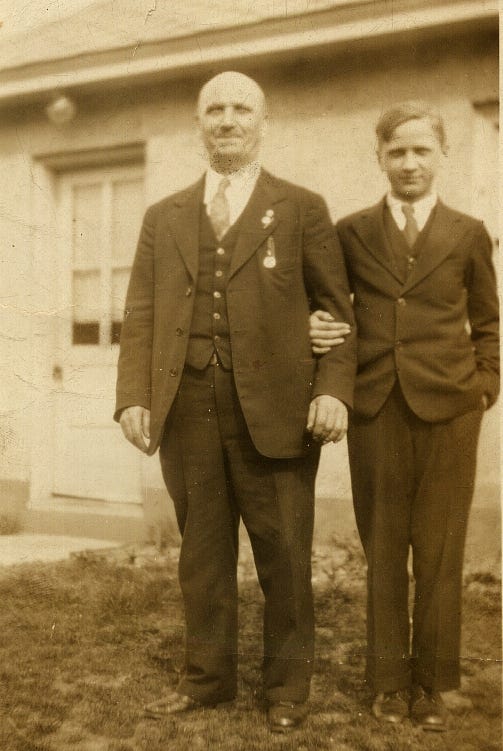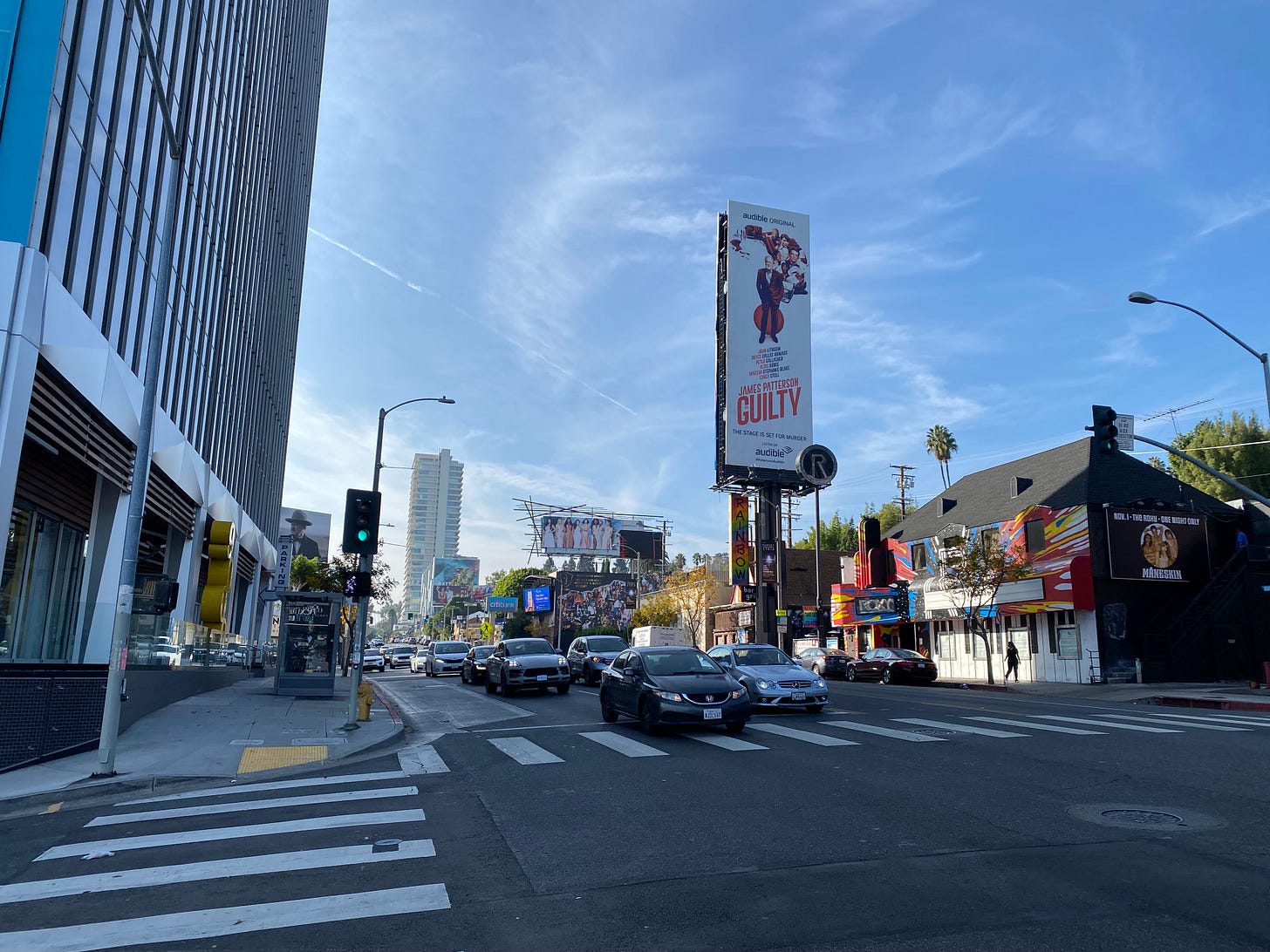My great-grandfather Anthony Swierczynski had a coronary on a wharf of the Franklin Sugar company on November 26, 1932. There was some confusion about his age; three weeks later, my great uncle Charles had to appear before a notary public to set the record straight for the state health department: “Swierczynski was born April 9, 1876, and was 56 years, 7 months and 17 days of age at the time of his death.” Until I started doing family research a few years ago, I never knew what my great-grandfather did for a living, nor how he died.
But I do know a little about the grueling life of a Philly stevedore thanks to the novels of David Goodis. In Goodis’s 1953 novel Moon in the Gutter, William Kerrigan is a stevedore who is torn up over the suicide of his sister:
At the time it had happened, he’d been flat on his back in a hospital ward. He was a stevedore, and on the docks a large crate had slipped off its mooring and hit him hard, breaking both legs. During his third week in the hospital he was told of his sister’s suicide.
In the novel, the main action takes place on “Vernon Street,” which confused me until I realized that Goodis had simply changed the first letter of the real-life “Fernon Street,” which makes sense when you consider the novel’s geography. Back in 2014 I spent a day with my friend Lou Boxer exploring the locations in the novel, all the way to the river. Along the way, I found the ruins of a pier that I would later use as a mob body dump site in my novel Canary. (I’m always on the lookout for these kinds of things.) At the time I had no idea that my own great-grandfather had taken his last breath one pier over.
There are other mysteries. At the time of his death my great-grandfather had been going by “Anthony Switzer,” lopping off a bunch of consonants, rearranging the others, and adding a “T” for good measure. I do not know why he made this change, but there has been pressure to kill the “Swierczynski” throughout the generations. My father went by the name “Walter Anthony” (lopping off the surname altogether) when playing guitar in bar bands. After graduating college, I was invited to lunch by writer and editor Jamie Malanowski, who at the time worked for Spy magazine. I adored the mag, and Jamie was a hero of mine for keeping his Polish surname. As we sat down to our steak frites in a Union Square boîte, Jamie had one piece of advice for me as I embarked upon my journalism career: “Change your last name.” (He suggested something offbeat and memorable, like “Duane Swerve.”)
Other members of the Swierczynski family have shortened the name to “Swayze,” I suppose in tribute to the late great Patrick. To me, Swayze sounds like my last name pronounced while incredibly drunk. And “swerve” is just asking for it. So I stubbornly kept all twelve letters, in the order previous generations had intended.
That said, my great-grandfather probably had his reasons for truncating the ol’ abomination. People still crack Polish jokes. (I’m one of them. They’re funny!) But more than one hundred years ago, the hate was real. In 1902—the year my great-grandparents emigrated to the U.S.—future president Woodrow Wilson wrote a “History of the American People” that referred to Poles, Hungarians and Italians are “men of the meaner sort” who possessed “neither skill nor energy nor any initiative of quick intelligence.” Well fuck you, too, Woody.
On the plus side, Polish men were also “romanticized as objects of raw sexual energy.” (This is according to Wikipedia, so you know it must be true.) In Edna Ferber’s 1931 potboiler American Beauty—not to be confused with the Kevin Spacey movie nor the Grateful Dead album—the heroine opines about appeal of Polish bohunks:
You saw the sinews rippling beneath the cheap stuff of their sweaty shirts. Far, far too heady a draught for the indigestion of this timorous New England remnant of a dying people. For the remaining native men were stringly of withers, lean shanked, of vinegar blood, and hard wrung.
And hey—Polish men were also ideal factory employees! Not smart enough to organize, but willing to work hard not steal too much. This is according to a 1900 piece that appeared in the Philadelphia Times and Brooklyn Eagle, describing ideal workers for sugar refineries:
The Christian Pole is dull, not very shrewd or progressive, not invariably as honest as a bank cashier, but he is faithful to his family, gets drunk principally at weddings and funerals and christenings [sic], hence he likes to have these things happen as often as possible; lives miserably in order to save money, and he is a good workman at any task that does not require such skill or intellect…
I wonder if executives at Franklin Sugar read this piece (or others like it) and decided to lure Polish workers to Philly with the promise of steerage tickets, an affordable place to stay, and a guaranteed job at the refinery on the river? Is this why my great-grandfather Anthony brought his young family to America? Is this why I exist?
Couch Surfing With David Goodis
Speaking of Goodis… one of my obsessions (I mean, hobbies) is to hunt for the places in L.A. where some of my favorite writers lived and worked. Not all of them spent some time in the sun, but quite a few of them did. Many liked Los Angeles enough to call it home for the rest of their lives. And then there was Dave Goodis.
According to Phillipe Garnier’s Goodis: A Life in Black and White, the noir legend never felt the need to commit to a place of his own. Instead, he used to crash in seedy hotels and the couches of friends. One of those friends was lawyer Allan Norkin, who lived on Eleanor Avenue just south of Santa Monica Boulevard and a few blocks away from Paramount.
But where, exactly? I had no idea… until recently, when I stumbled across a reference to Norkin in an L.A. Times piece about a radio talent school racket.
And boom, there was the address: 6116 Eleanor.
After checking real estate listings to make sure this was the same apartment building from the 1940s (it was) I drove down to Hollywood to take a look for myself.
Thanks to Garnier’s reporting, we have an idea of what David Goodis was like as a house guest. Norkin told Garnier:
I still see him in that living room of mine. He had a ritual at night. He slept on that damn sofa with his tie and shirt on. He’d put his tie over his eyes, against the living room lights. In the morning, he’d just straighten his tie knot, smoothed his shirt some, and he was ready for the day! He hated to bathe.
Goodis paid four bucks a week for a “miniscule sofa, very uncomfortable, a fakir couldn’t have slept on it,” Norkin said. “But David slept there in my living room for months and months.”
Guilty on the Sunset Strip
Last Monday night I went to Barney’s Beanery in West Hollywood for a quick bite before a grindhouse double feature at the New Beverly (Madman and Silent Madness). I like to go restaurants alone to write and ignore whatever sporting event is on TV. Only later did I realize I’d left my credit card behind, so I drove back down the next day to pick it up.
On a whim, I headed up Holloway Drive towards the Sunset Strip and I was happily surprised to see the super-sized specter of John Lithgow off in the distance. There, between the fabled Rainbow and Roxy, was a billboard promoting The Guilty, the Audible serial I co-wrote with James Patterson.
So yeah, I was the weirdo trying to take all kinds of photos while dodging cars up and down the Strip. But come on… how often does this kind of thing happen? It would have been worth getting creamed by a Tesla.
The next day I returned to the New Beverly for a screening of The Paper Chase and somehow managed to lose my car keys. I still haven’t found them.
Evie’s Holiday Book Drive Continues…
Last year, Evie’s Holiday Book Drive raised over 2,000 new books; we’re hoping to top 2,500 this year. Thanks to your generosity, we’re halfway to our goal!
But we still need your help spreading the word. If you visit teameviefoundation.com, you’ll find links to all four indie bookstores participating in this year’s drive (and here’s the 2021 Amazon wish list), which ends on December 5. Huge thanks to everyone who has already made a donation. You’re going to make a lot of kids very happy in the coming year.
That’s all for now. Be kind to each other, don’t forget to soak the turkey wishbone in vinegar, and don’t be shy about sending questions or comments.









All I can think is you’d be mean too if you had the tsar’s army chasing out of town. Pissed off my great-grandfather.
Fantastic issue, as usual Duane. I’ve only read a couple of Goodis novels. I want to read more now. OK, time to toss my necktie over my eyes and get some shut eye.